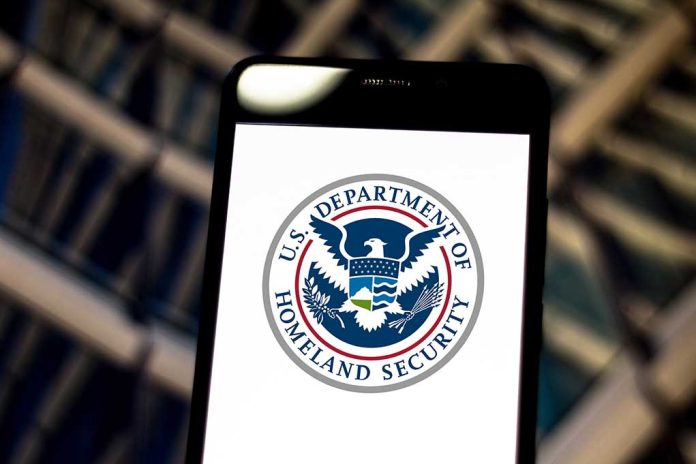
The Trump administration finds itself under scrutiny after allegedly adding The Atlantic’s editor to a high-level Signal chat discussing military operations against Houthis in Yemen.
Key Takeaways
- The Atlantic’s editor-in-chief Jeffrey Goldberg was reportedly accidentally added to a Signal chat containing sensitive military discussions about strikes against Houthis in Yemen.
- The White House has confirmed the authenticity of the message thread but maintains it posed no threat to troops or national security.
- President Trump claims no knowledge of the chat or report, stating, “I don’t know anything about it,” while emphasizing the effectiveness of the military operation.
- Democratic leaders, including Chuck Schumer, have called for investigations into what they describe as a serious security breach.
- House Speaker Mike Johnson has downplayed the incident as an inadvertent mistake while affirming confidence in the national security team.
Alleged Security Breach Involving Top Officials
A report by The Atlantic claims that high-ranking Trump administration officials inadvertently included editor-in-chief Jeffrey Goldberg in a Signal chat group discussing military operations against Houthi rebels in Yemen. The chat allegedly included Defense Secretary Pete Hegseth, Secretary of State Marco Rubio, Vice President JD Vance, Director of National Intelligence Tulsi Gabbard, and CIA Director John Ratcliffe discussing and coordinating the recent strikes against Houthi targets that took place on March 15.
The National Security Council spokesperson Brian Hughes has confirmed the authenticity of the message thread. “This appears to be an authentic message chain, and we are reviewing how an inadvertent number was added to the chain. The thread is a demonstration of the deep and thoughtful policy coordination between senior officials. The ongoing success of the Houthi operation demonstrates that there were no threats to troops or national security,” said Hughes.
Jeffrey Goldberg on Trump not knowing about the Signal group chat: "I alerted the White House shortly after 9 in the morning." pic.twitter.com/5QK1HqNsk8
— Blue Georgia (@BlueATLGeorgia) March 25, 2025
Trump Administration Response
President Trump has distanced himself from the controversy, claiming he was unaware of both the chat group and The Atlantic’s report. When questioned about the incident, Trump responded, “I don’t know anything about it, I’m not a big fan of The Atlantic. To me it’s a magazine that’s going out of business … but I know nothing about it.”
Defense Secretary Pete Hegseth has disputed the characterization of the chat’s contents, “I’ve heard how it was characterized. Nobody was texting war plans, and that’s all I have to say about that,” remarked Hegseth. The White House Press Secretary Karoline Leavitt has expressed continued confidence in the administration’s national security team, emphasizing the success of the military operations against the Houthis.
Congressional Reactions Split Along Party Lines
Democratic leaders have expressed alarm over the alleged security lapse. Senate Minority Leader Chuck Schumer called for an investigation, describing the incident as “one of the most stunning breaches of military intelligence I have read about in a very, very long time.” Former Secretary of State Hillary Clinton responded to the news with disbelief, “You have got to be kidding me,” stated Clinton.
In contrast, House Speaker Mike Johnson has minimized the significance of the incident. When asked if disciplinary action would be taken against National Security Adviser Mike Waltz or Defense Secretary Pete Hegseth, Johnson responded with a clear “no, no of course not.” Johnson acknowledged it as a mistake that the administration was addressing, attributing it to an inadvertent phone number being added to the thread, and expressing confidence that similar incidents would be prevented in the future.
Military Operation Context
The controversial Signal chat was related to U.S. military strikes against Houthi rebels in Yemen on March 15. The Trump administration launched these strikes in response to Houthi attacks on American warships, with President Trump criticizing the previous administration’s approach as insufficient. During his announcement of the military action, Trump warned both the Houthis and their Iranian supporters of serious consequences should attacks on American vessels continue.
According to The Atlantic’s report, Goldberg initially believed the chat was a hoax due to its unusual nature but later concluded it represented a significant security breach. The magazine claims the chat contained not only discussions about attacking the Houthis but also congratulatory messages after the strikes were carried out, along with operational details that Goldberg chose not to publish due to security concerns.
Sources:
Messages with Yemen war plans inadvertently shared with reporter appears ‘authentic’: Official
Speaker Johnson: Waltz, Hegseth shouldn’t be disciplined over war plans Signal chat







